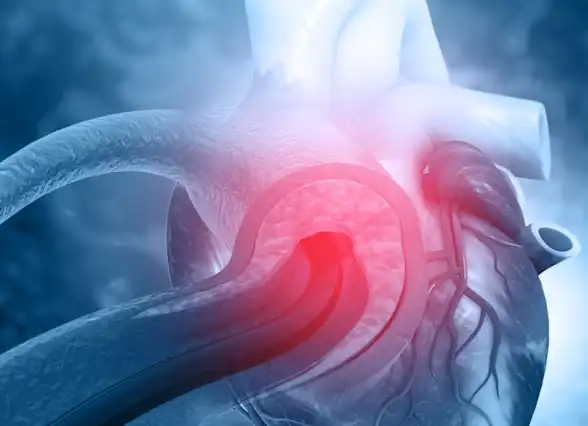Heart Failure Causes and Prevention
In most cases, heart failure develops slowly over time from long-term medical conditions, and in the early stage, may have no signs or symptoms.
Get insurance benefits, legal documents, and medical records in one place

Helpful Highlights
The best way to manage heart failure is to prevent it altogether.
There are people at higher risk than others for developing heart failure.
Some other medical conditions and events can cause heart failure.
As heart failure progresses, the symptoms may range from mild to severe. Symptoms can be constant or come and go. While heart failure usually develops gradually over an extended period, it can also start suddenly after a medical condition, event, or injury to the heart muscle (such as a heart attack).
What is CHF?
Heart failure — often known as congestive heart failure (CHF), which is left-sided heart failure and the most common type — is a serious and life-limiting condition wherein the heart doesn't pump blood as well as it should.*
Despite the name “heart failure”, it doesn’t mean that the heart has actually failed or is about to stop working. It means that the heart muscle has weak contraction that limits its ability to eject blood.
This can cause blood to pool or back up in the heart, causing additional problems in the lungs and throughout the body, as well as furthering the heart's weakness.
With or without treatment, heart failure is progressive, meaning it gradually gets worse. More than 5 million people in the United States have CHF. It’s the most common diagnosis in hospitalized patients over age 65.
*While left-sided heart failure is the most common type, right-sided heart failure does occur - and on rare occasions, before left-sided heart failure (such as in cases of pulmonary hypertension, or high blood pressure in the lungs). The left side of the heart pumps blood out to the body, and the right side of the heart pumps blood to the lungs. Over time, left-sided heart failure can lead to right-sided heart failure.
Prevention
The surest way to prevent or delay heart failure is to prevent and control conditions that cause it.
Stop smoking (or don't start). Not smoking is the #1 action to improve health. Regarding heart failure, smoking is the major factor in arterial damage that causes it. Also, steer clear of secondhand smoke.
Make heart-healthy food choices. Heart-healthy foods are those that contain little saturated fat, trans fat, sugar, and sodium (salt). Think fresh fruits and vegetables (not canned), low-fat dairy (milk and cheese), lean proteins such as chicken without the skin and fish (versus red meats and pork), and good fats such as those found in olive oil, fish, nuts, and avocados.
Lose weight. Along with diet, being physically active helps with weight loss and is also great for your heart. There are no fad diets or pills that work for weight loss. Weight loss requires lifestyle changes. The health plan has benefits available for sustainable weight loss.
Adhere to your existing cardiac program. If there is another active heart condition being treated, such as hypertension or coronary artery disease (a.k.a. heart disease), continue to adhere to that treatment regimen, and work with the provider to manage any other health conditions that increase your risk of developing heart failure (such as diabetes).

Who is more likely to develop heart failure?
Heart failure can happen at any age. It happens to both men and women, but men often develop it at a younger age than women. The chance of developing heart failure increases when:
65 years or older
Have a family health history of heart problems
Have habits that can harm your heart, including:
Smoking
Eating foods high in fat, cholesterol, and sodium (salt)
Sedentary (inactive) lifestyle
High alcohol consumption (the plan provides for alcohol use disorder (AUD) screening)
Illicit drug use, regardless of route (swallowed, smoked, snorted, injected)
Have other medical conditions, including:
High blood pressure (hypertension)
Lung disease
Infections, such as Hepatitis, HIV/AIDS, COVID-19
Obesity
Diabetes
Sleep apnea
Chronic kidney disease (CKD)
Anemia (of any type)
Medical conditions and events that can cause heart failure
Arrhythmia (a problem with the rate or rhythm of your heartbeat)
Cardiomyopathy
Congenital (at birth) heart defects or other types of heart conditions
Coronary artery disease (CAD)
Endocarditis
Heart attack
Heart valve diseases
High blood pressure (hypertension)
Vascular disease (venous or arterial)
A blood clot in your lung (pulmonary embolism or PE)
Diabetes
Lung disease (such as COPD)
Obesity
RESOURCES
American Heart Association (AHA) – Heart Failure
American Heart Association (AHA) – Classes & Stages of Heart Failure
2022 AHA/ACC/HFSA Guideline for the Management of Heart Failure
Caraballo, C., Desai, N.R., Mulder, H., Alhanti, B., Wilson, F.P., Fiuzat, M., et al. (2019). Clinical implications of the New York Heart Association classification. Journal of the American Heart Association, 8(23), e014240. doi: 10.1161/JAHA.119.014240
Cleveland Clinic – Heart Failure
No content in this app, regardless of date, should ever be used as a substitute for direct medical advice from your doctor or other qualified clinician.
Get more support and guidance on insurance benefits, medical records and legal forms.
Helpful brings together your insurance benefits, legal documents, and medical records in one personalized place — so you always know what you have, and never have to search again.

Technology for Health Tasks. Mental Health for the Tough Stuff.
Helpful connects your medical records, insurance, and caregiving tasks automatically. And when you need more than logistics, a therapist is here to guide you.
In-Network and Covered
For Individuals, Couples and Families
HIPAA Compliant, Data Stays Private


Healthcare Tasks Simplified

From syncing records to spotting drug interactions, Helpful does the heavy lifting, turning complex health info into clear tasks and showing you benefits you can actually use, giving you clarity and control over your care.

In-Network Mental Health

Our licensed therapists are here to support you and your loved ones through stress, burnout, and life’s hardest moments, with an inclusive, compassionate approach that works with most insurance plans.

Create Legal Documents

Plan ahead by creating will, trusts, advance directives and more, that ensure your wishes are honored in the event you can’t speak for yourself -with Helpful guiding you every step of the way.